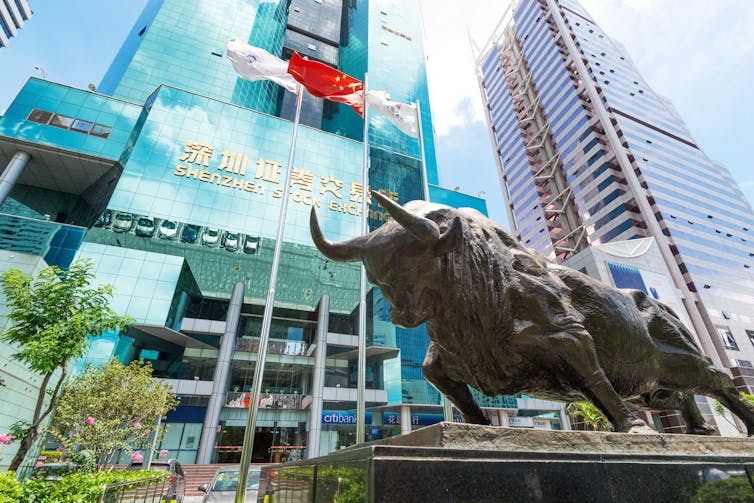Alejandro Riaño, City, University of London and Fabrice Defever, City, University of London
Britain is considering opening free ports to shore up its economy when the Brexit transition ends. The idea is that ten free ports across the country will increase trade, attract inward investment, encourage high-tech manufacturing and create employment in some of the UK’s most deprived areas.
Free ports have been portrayed by some as a way for the UK to rediscover its maritime vocation and increase trade with the world beyond the EU after Brexit. Given that it’s effectively impossible to have a free port as a member of the EU, these free trade zones are seen as something the UK could capitalise on outside of EU law.
Our research into free ports indicates that they will not create a free trade utopia that benefits the whole country. But they can serve as a way to maintain regulatory alignment, and therefore free trade, with the EU, while at the same time making trade deals with other countries.
Success stories
A free port is an area within a country’s land border where different customs rules apply. In its most basic form, firms operating in a free port enjoy duty-free access to imports and only have to pay tariffs when they export goods to the national customs territory.
Free ports often offer a wide range of incentives for businesses to operate here. These include lower corporate taxes, providing basic utilities at below-market prices and laxer regulations and employment rules. The UK government has indicated that companies based in the new free ports would enjoy discounts in business rates (up to £275,000 over a five-year period), enhanced capital allowances on new machinery and equipment, R&D tax credits and streamlined planning procedures.
Free ports and other special economic zones are increasingly popular around the world. Out of the 5,400 zones in operation in 2019, more than 1,000 were opened during the last five years. Most have been in developing countries; notably China, the Dominican Republic, Mauritius and Mexico.

The common theme linking these success stories is that their free ports were introduced against a backdrop of highly protectionist trade policies. The ports reduced the costs for exporters in these countries requiring imported parts. They enabled them to diversify their exports away from just primary commodities and facilitated the growth of firms into global value chains.
The Dominican Republic is a prime example of this transition. While in the 1960s, most of its exports were bananas, sugar, rum and cigars, the establishment of free ports allowed it to become one of the main apparel exporters to the US in the 1980s.
Costs and benefits
Given the UK’s level of development and balance of its economy between manufacturing and services, there is limited scope for free ports to bring the benefits enjoyed by developing countries. It is unlikely that the fiscal incentives provided by free ports will be generous enough to realign the UK’s exports away from services, concentrated in London, towards manufacturing elsewhere.
Free ports also entail substantial costs. The incentives offered in these free trade zones lowers the costs of exported goods, which are enjoyed by consumers abroad in the form of lower prices. Meanwhile the cost of foregone tax revenue is felt at home.
The tax incentives to attract businesses to free ports also create an uneven playing field that slows the dynamism of firms outside free ports. Products manufactured in free ports tend to be more sophisticated than those produced outside, offering limited value to the country’s economy beyond the free trade zone, creating what’s known as an enclave economy.
In countries where taxes are determined at the regional level – China being a prime example – the use of free ports and special economic zones spurred a process of intense competition among local officials seeking to attract the largest number of companies to their respective zone. Tax revenues in many of these regions suffered as a result.
Ironing out the kinks
Nonetheless, taking a page from China’s playbook, free ports could serve as effective laboratories for the UK to experiment with its future trade relationship with the EU. Having been virtually closed to international trade, the Chinese Communist Party introduced special economic zones in 1978 to test market-oriented reforms in the controlled environment of these specific zones. Doing so allowed policymakers to contain problems more easily and to iron out the kinks of certain policies before rolling them out at the wider provincial and national levels.
If regulatory alignment with the EU and “taking back control” are conflicting objectives for the UK, free ports targeting trade with the EU could offer a solution to preserve the UK’s access to the European market, while the UK pursues free trade agreements with other countries. This would be critical to sectors such as the auto industry, chemicals and electrical equipment, which rely on more than half of their inputs from the EU.
From this perspective, the key for the success of free ports is that they enjoy access to the EU single market with as little friction as possible.
Alejandro Riaño, Lecturer in Economics, City, University of London and Fabrice Defever, Professor of Economics, City, University of London
This article is republished from The Conversation under a Creative Commons license. Read the original article.




